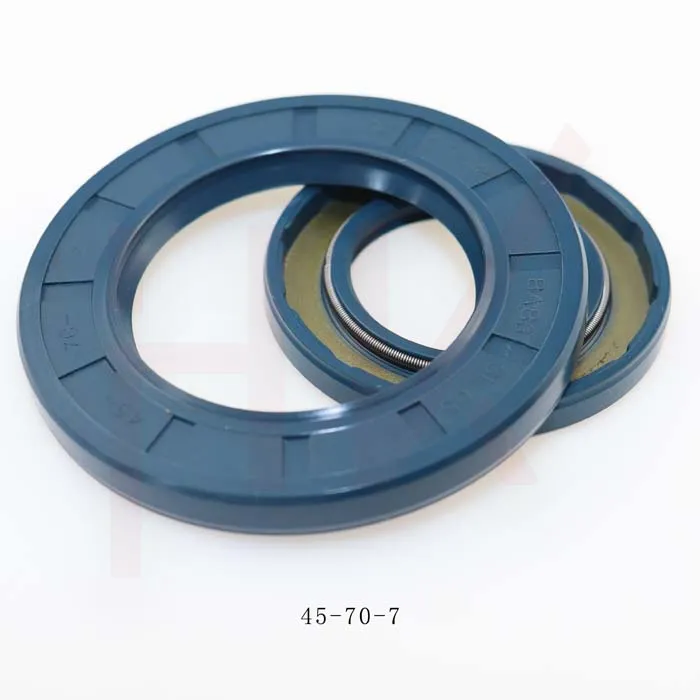Ное . 16, 2024 08:02 Back to list
what is the purpose of oil seal
The Purpose of Oil Seals Essential Components in Mechanical Systems
Oil seals, often overlooked in the grand scheme of machinery and automotive engineering, play a critical role in improving the efficiency and longevity of mechanical systems. Their primary purpose is to seal the joints where rotating shafts are present, thereby preventing the leakage of lubricants and safeguarding against the ingress of dirt, dust, and moisture. This article delves into the various functions, types, and applications of oil seals, highlighting their significance in modern machinery.
Understanding Oil Seals
An oil seal, also known as a fluid seal, is a mechanical component that is designed to retain oil or other lubricating fluids in machinery while simultaneously preventing the entry of contaminants. These seals are usually made of rubber or other elastomeric materials that provide flexibility and resilience. They can come in various shapes and sizes, depending on the specific requirements of the application.
Key Functions of Oil Seals
1. Leak Prevention One of the primary functions of an oil seal is to prevent lubricant leakage. In engines and machines, oil is essential for reducing friction between moving parts. Without a functioning oil seal, the lubricant can escape, leading to insufficient lubrication, which can cause overheating and eventual failure of components.
2. Contaminant Protection Oil seals act as a barrier against harmful contaminants such as dust, dirt, and moisture. These foreign particles can damage sensitive engine parts and reduce the efficiency of mechanical systems. By keeping these contaminants at bay, oil seals help maintain optimal performance and extend the life of machinery.
3. Pressure Maintenance In many situations, mechanical systems operate under specific pressure conditions. Oil seals help maintain these pressure levels by preventing fluid from escaping and ensuring that the system performs as designed. This is particularly important in hydraulic systems, where precise pressure control is crucial for operation.
4. Reduction of Friction Properly functioning oil seals can also help decrease friction between moving components. This reduction in friction not only improves efficiency but also reduces the wear and tear on parts, leading to a longer lifespan for the entire system.
Types of Oil Seals
what is the purpose of oil seal

Oil seals come in various types, each designed for specific applications. The two primary types are
- Radial Oil Seals These seals are designed to fit into a housing bore and seal against a rotating shaft. They are commonly used in applications like automotive engines and gearboxes.
- Axial Oil Seals Also known as thrust seals, these are used in applications where the seal must resist axial loads. They are typically found in scenarios where two surfaces slide against each other, such as in the case of some types of pumps.
Applications of Oil Seals
Oil seals can be found in a wide range of applications across various industries. In the automotive sector, they are utilized in engines, transmissions, and differential systems. In manufacturing and industrial machinery, oil seals are crucial for compressors, pumps, and conveyors. Additionally, oil seals are imperative in aerospace applications, where reliability and efficiency are paramount.
Importance of Quality and Maintenance
The performance of oil seals can significantly influence the reliability of mechanical systems. Therefore, it is essential to choose high-quality oil seals that meet the specifications of the application. Regular maintenance and inspection play a crucial role in ensuring that oil seals continue to function effectively over time. Signs of wear, such as leaks or unusual noises, should be addressed immediately to prevent more severe damage to the system.
Conclusion
In conclusion, oil seals are indispensable components in a myriad of mechanical systems. Their ability to prevent leaks, protect against contaminants, maintain pressure, and reduce friction makes them crucial for the efficiency and longevity of machinery. Whether in automobiles, industrial equipment, or aerospace technology, the role of oil seals cannot be underestimated. As technology continues to advance, so too will the designs and materials used for oil seals, ensuring that they meet the ever-evolving demands of modern engineering. For anyone involved in the maintenance or design of mechanical systems, understanding and correctly implementing oil seals is essential for optimal performance and durability.
-
TCN Oil Seal Metal Ring Reinforcement for Heavy Machinery
NewsJul.25,2025
-
Rotary Lip Seal Spring-Loaded Design for High-Speed Applications
NewsJul.25,2025
-
Hydraulic Cylinder Seals Polyurethane Material for High-Impact Jobs
NewsJul.25,2025
-
High Pressure Oil Seal Polyurethane Coating Wear Resistance
NewsJul.25,2025
-
Dust Proof Seal Double Lip Design for Construction Equipment
NewsJul.25,2025
-
Hub Seal Polyurethane Wear Resistance in Agricultural Vehicles
NewsJul.25,2025
-
The Trans-formative Journey of Wheel Hub Oil Seals
NewsJun.06,2025
Products categories
















